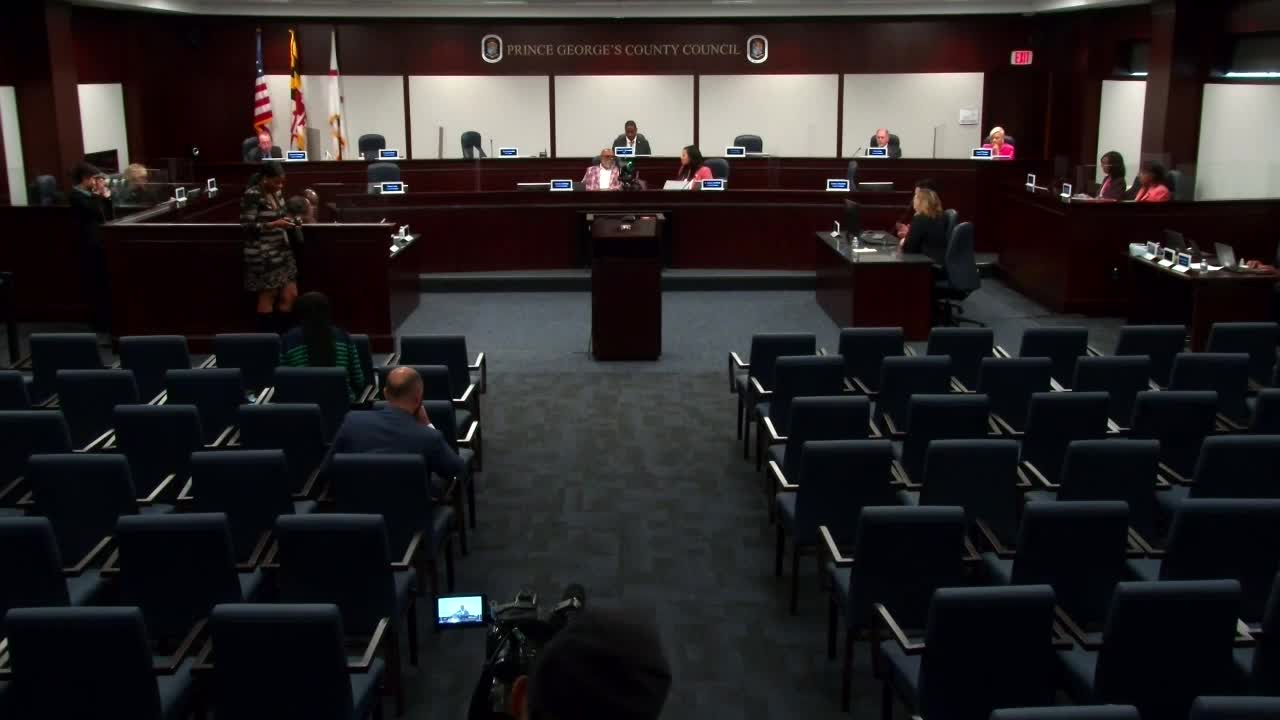Prince George's County work group issues 32 recommendations to address truancy and chronic absenteeism
Get AI-powered insights, summaries, and transcripts
Subscribe
Summary
A county work group presented 32 recommendations across education, mental health, interventions and family engagement to address chronic absenteeism and habitual truancy in Prince George's County Public Schools; an interagency implementation group is already meeting.
The Prince George's County Council on Oct. 14 received the final report from a county truancy study work group that recommends 32 actions—spanning educational supports, mental-health interventions, incentives and family engagement—to reduce chronic absenteeism and habitual truancy in the county's public schools.
The recommendations matter because chronic absenteeism and truancy harm learning and long-term outcomes for students. Adrian Albert, director of the county's Education and Workforce Development Committee, told the council the work group identified both immediate and longer-term steps and that the county executive's team had already stood up an interagency implementation group that met Sept. 30.
The report defines habitual truancy as 20% or more unexcused absences and chronic absenteeism as 10% or more absences including excused reasons. "This includes both excused and unexcused, as learning loss may happen regardless of the reason a student is outside of the classroom," Albert said. The work group noted habitual truancy peaked in 2021 and has been declining since, but that targeted action is still needed.
The work group, established originally by resolution CR 74 20 23 and extended by CR 10 20 24, organized its 32 recommendations into four categories: educational supports, root causes and mental health, interventions and incentives, and family engagement. Examples include an attendance monitoring system, school-based mental-health services, expanded truancy diversion courts, transportation assistance vouchers, mentoring programs, family attendance liaisons, multilingual parent engagement teams and attendance-focused parent-teacher conferences.
Dr. Donna Christie, president of the Prince George's County Educators Association and a co-chair of the work group, said school attendance is an "early warning sign" for other negative outcomes and urged investment in trauma-informed practices, social-emotional learning and peer supports. Council Vice Chair Oriada and Council Member Wanika Fisher, who co-sponsored the resolution forming the group, emphasized the importance of a countywide, consistent approach rather than reliance on individual schools' efforts.
The report noted that many recommendations include an estimated timeframe and cost, but the council packet did not include a single, consolidated cost total. The report also highlights that Prince George's County now has 147 community schools, which the work group said supports family engagement and student services.
The work group recommended establishing an internal implementation task force; county staff reported the county executive's team had already created a multiagency group to begin implementation. Albert said he will provide periodic updates to the council on the task force's progress and coordination with Prince George's County Public Schools (PGCPS).
Council members asked about specific protections for students whose families may avoid school because of immigration enforcement concerns; the work group said one avenue is increasing access to online learning options as an alternative when families reasonably fear leaving home. The report also calls for clearer, consistent family engagement plans across schools and for expanding supports in schools with high absenteeism.
The council did not take a formal vote on adopting the recommendations during the Oct. 14 meeting; the report was received and the council will be updated on implementation work and any fiscal requests as they are developed.
